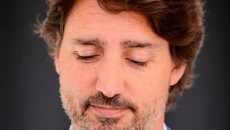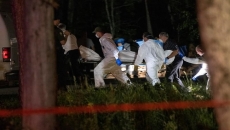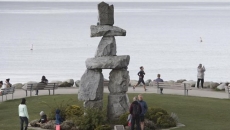A decade-long legal battle over mass arrests at the 2010 G20 summit in Toronto has come to a close after police and hundreds of protesters and others reached a $16.5 million settlement.
Lawyers representing those behind the class-action lawsuit said Monday the agreement comes after 10 years of court proceedings and negotiations with the Toronto Police Services Board.
Under the settlement, those arrested will each be entitled to compensation between $5,000 and $24,700, depending on their experiences, the lawyers said in a statement.
The deal also includes a public acknowledgment by police regarding the mass arrests and the conditions in which protestors where detained, as well as a commitment to changing how protests are policed in the future.
Those who were wrongfully arrested will also have their police records expunged, the lawyers said. The class action represented some 1,100 people who were arrested during the event.
Sherry Good, who launched the lawsuit in 2010, said the agreement "does bring about some justice," and she hopes the right to free expression will be better respected from now on.
"The terrifying way in which I and 400 others were suddenly and arbitrarily surrounded and held by riot police on a street corner for four hours in a freezing downpour changed forever the way I look at police, continues to give me chills," she said in a statement.
Thomas Taylor, who joined the lawsuit as another representative plaintiff, said the incident showed him "how very fragile civil liberties are for so many of us."
"For me and hundreds of others, being suddenly surrounded and held captive by frightening numbers of riot police when we had done nothing at all, going through violent and unlawful arrests, and then being thrown into a nightmare detention centre, was a stunning and horrifying experience," he said in a statement.
Toronto police said the force is "pleased to reach resolution" but did not otherwise comment on the agreement.
Canada's most populous city hosted the G20 summit of world leaders in June 2010.
Many public demonstrations were organized to address issues like climate change, globalization, and poverty. Thousands of protestors demonstrated peacefully, but some protests were accompanied by deliberate vandalism.
Police reacted by encircling large groups of hundreds of protestors in several locations in downtown Toronto with cordons of riot police, holding them for hours, and then transferring many of them to a temporary detention centre in the largest mass arrest in Canadian history.
Lawyers for the plaintiffs said Toronto Police Services objected to the class-action proceedings in court, and the suit wasn't certified as such until a police appeal to the Supreme Court of Canada was dismissed in November 2016.
The agreement must still be reviewed and approved by a judge, with a hearing scheduled for Oct. 19.






